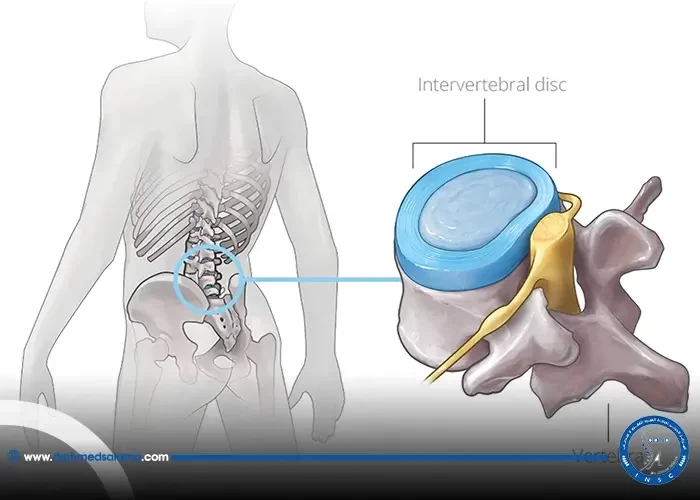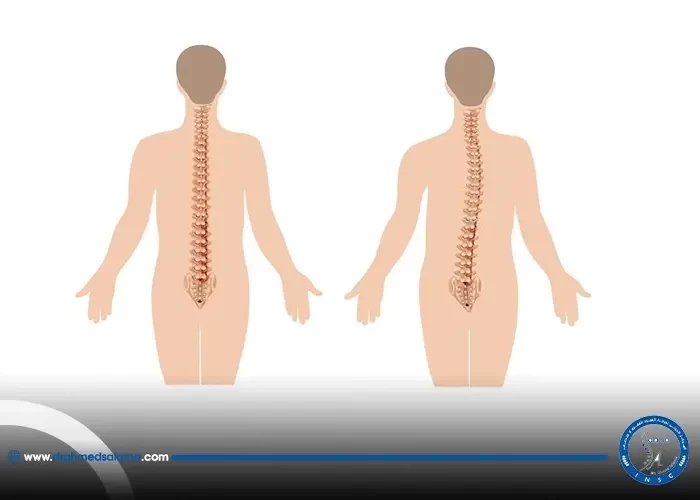Nasr City, 52 El Tayaran Street, in front of the Health Insurance Hospital

Treatment of brain tumors

Brain Tumor Treatment: From Diagnosis to Complete Recovery
Brain tumor treatment is a major medical challenge that requires multidisciplinary intervention to ensure the best results. Treatment varies depending on the type, size, and location of the tumor in the brain. Available options include microsurgery, radiation therapy, and advanced drug therapies. In this article, we review the most prominent treatment methods, such as brain tumor surgeries, benign brain tumor treatment, non-surgical brain tumor treatment, and radiation therapy for brain tumors. We also highlight the cure rate for brain tumors in adults. We will also discuss brain tumor prevention strategies that may help reduce risks and improve the chances of successful treatment. Read on to the end of the article with Dr. Ahmed Ibrahim Salama, Consultant Neurosurgeon and Spine Surgeon, to learn all this information and more.
Brain Tumor Treatment
Brain tumor treatment is a medical challenge that requires careful planning tailored to the type, location, and size of the tumor, as well as the patient's general condition. Treatment methods vary between microsurgery, radiation therapy, and advanced medications. More than one treatment method may be used within an integrated plan to ensure the best possible results. Brain tumor treatment includes:
Brain tumor surgeries
Surgery is the primary treatment option if the tumor is resectable. It aims to remove all or part of the tumor to relieve pressure on the brain and improve brain function. It is performed using precise techniques that preserve healthy brain tissue.
Radiation therapy for brain tumors
This involves directing high-energy beams at the tumor to shrink it or destroy its cells. It is often used after surgery or as an alternative in cases where surgical intervention is difficult.
Stereotactic radiotherapy (SRS)
A precise, non-invasive treatment used to deliver high-dose radiation to the tumor without the need for an incision or anesthesia. It is suitable for small tumors or those located in sensitive areas that cannot tolerate surgery.
Chemotherapy
This treatment uses drugs that target cancer cells throughout the body, including the brain, to reduce tumor growth or eliminate it. It is often used for malignant tumors as part of a comprehensive treatment plan.
Targeted Therapy
Focuses on attacking cancer cells based on their genetic or molecular characteristics, making it more precise and less harmful to healthy cells. It is used in select cases based on advanced analysis.
Immunotherapy
It relies on activating the patient's immune system to recognize and effectively attack tumor cells. It is an innovative option used for some types of advanced brain tumors and has shown encouraging results.
Monitoring and Follow-up Without Direct Treatment
In some cases, such as benign or slow-growing tumors, periodic monitoring with imaging and examinations is sufficient without immediate therapeutic intervention. Intervention is only required when symptoms appear or the tumor progresses.
Don't let anxiety overwhelm you; early diagnosis and treatment under specialized supervision can make a difference. Don't hesitate to contact Dr. Ahmed Salama, one of the best doctors specializing in brain tumor treatment, who combines meticulous medical expertise with advanced treatment insights. Contact us now to book your appointment and begin your recovery journey with confidence and peace of mind.
Learn more about the best doctor for spinal cord surgery in Egypt
What are the treatment methods for benign brain tumors?
Treatment methods for benign brain tumor symptoms vary depending on the tumor's size, location, and associated symptoms. In some cases, where the tumor is not causing any pressure on brain tissue or causing any noticeable symptoms, periodic monitoring through x-rays and examinations may suffice without immediate intervention. However, if the tumor is causing bothersome symptoms or is located in a sensitive area, surgical intervention may be necessary.
Brain tumor surgeries are the primary treatment option for resectable cases. They aim to remove the tumor with minimal damage to surrounding tissue. If surgery is not possible or a small portion of the tumor remains, radiation therapy may be used to shrink the tumor or prevent future growth. Targeted or immunotherapies are also used in specific cases, based on the treating physician's assessment.
Can brain tumors be treated without surgery?
In some cases, non-surgical options may be used as part of a brain tumor treatment plan, especially when the tumor is small, slow-growing, or located in an area that is difficult to surgically access. The most prominent of these options is radiation therapy for brain tumors, which includes advanced techniques such as stereotactic radiosurgery, which is used to shrink the tumor or stabilize its growth without requiring an open skull opening.
Some drug treatments, such as chemotherapy and immunotherapy, are also available and are used for specific types of tumors depending on the response of each case. However, brain tumor surgery, also known as benign brain tumor surgery, remains the optimal treatment option in many cases, especially when the tumor is compressing vital areas or causing significant neurological symptoms. The final decision regarding the most appropriate treatment requires a careful evaluation by a specialist physician based on the nature of the tumor and the patient's condition.
Rehabilitation Therapy After Brain Tumor Treatment
After receiving treatment for a brain hemorrhage or tumor, whether through brain tumor surgery, radiation therapy, or other brain tumor procedures, rehabilitation therapy is an important step in enabling the patient to return to normal life. Rehabilitation therapy varies based on the patient's specific needs, which depend on the location of the tumor and the extent of its impact on bodily functions.
Specialized rehabilitation therapies include:
Physical therapy: aims to restore movement and the ability to perform daily activities normally.
Occupational therapy: aims to improve fine motor skills that may be affected by the tumor or treatment.
Speech therapy: works to improve the ability to speak and communicate effectively, especially if speech is affected.
In addition, rehabilitation therapy includes psychosocial support to help the patient adapt to the changes resulting from treatment and support them in facing the psychological and emotional challenges that may arise during the recovery period.
Rehabilitation therapy is tailored to the patient's individual needs, making it an essential part of a comprehensive treatment plan that helps restore the ability to perform daily activities and improve quality of life after treatment.
Here's more about the recovery period after a spinal fusion surgery.
What is the recovery rate for a brain tumor?
The recovery rate for a brain tumor varies depending on several factors, most notably the type of tumor (benign or malignant), its location within the brain, and its advanced stage at diagnosis, in addition to the patient's age and general health. For example, some benign tumors are completely curable through brain tumor surgery or specialized brain tumor operations, and may not recur after complete removal.
More complex tumors may require advanced treatment protocols that include radiation therapy or chemotherapy, in addition to surgery. Statistics indicate that five-year survival rates may exceed 90% for some benign or low-grade tumors, while this rate is lower for aggressive, high-grade tumors. However, these rates may improve with continued advances in brain tumor treatment methods.
It is important to emphasize that every case is different, so close follow-up with a neurosurgeon, such as Dr. Ahmed Ibrahim Salama, plays a vital role in improving recovery chances and providing a personalized treatment plan for each patient.
Is it possible to completely recover from a brain tumor?
The possibility of a complete recovery from a brain tumor varies from case to case, and depends primarily on the type of tumor (benign or malignant), its location, and its response to treatment. In cases of benign tumors, which clearly display symptoms such as headaches or changes in vision, the tumor can be completely removed through brain tumor surgery, giving the patient a high chance of complete recovery and preventing the tumor from recurring. In cases of malignant tumors, the recovery rate from a malignant brain tumor varies based on several factors, including the speed of diagnosis and the treatment followed. It is also important to understand the general symptoms of a brain tumor and early symptoms to facilitate early detection. As for the question of whether a benign tumor causes hair loss, it is often related to the chemotherapy or radiation treatments used, not the tumor itself. In general, early diagnosis and establishing an appropriate treatment plan are key to improving the chances of recovery and achieving effective results in brain tumor treatment.
My Experience with a Brain Tumor
A brain tumor diagnosis represents a pivotal moment in a patient's life, but with the right guidance and appropriate treatment, this stage can be successfully overcome. Many patients have shared their experiences with brain tumor treatment with Dr. Ahmed Ibrahim Salama. One of them said, "My experience with brain tumor surgery was precise and reassuring, and it was performed under the supervision of a specialized team that made me feel safe from the first moment."
The success of benign brain tumor surgery depends not only on the skill of the surgeon, but also on the comprehensive treatment plan, which may include brain tumor surgery or radiation therapy, depending on the case. Dr. Ahmed Ibrahim Salama is one of the doctors who ensures comprehensive care and close follow-up after each procedure, giving the patient a better chance of recovery and psychological comfort throughout the treatment journey.
Brain Tumor Prevention
Although it is difficult to completely avoid brain tumors due to genetic and environmental factors, there are steps you can take to reduce the risk and support brain tumor treatment:
Healthy Nutrition: Eat foods rich in vitamins and minerals, such as fruits and vegetables, to support brain health and reduce risks.
Radiation Reduction: Reducing exposure to x-rays and CT scans contributes to the prevention of brain tumors.
Regular Physical Activity: Regular exercise improves blood circulation and strengthens the brain.
Avoid Harmful Chemicals: Reducing exposure to toxic substances in the environment or at work that may increase the risk of tumors.
Periodic Checkups: Regular medical checkups for early detection of any symptoms that may indicate brain tumors, increasing the chances of successful brain tumor treatment.
By following these healthy habits, you can reduce the risk of brain tumors and contribute to improving the recovery rate from brain tumors in adults and children.
Why is Dr. Ahmed Ibrahim Salama one of the best doctors for treating brain tumors?
If you are looking for a reliable doctor to treat brain tumors accurately and safely, Dr. Ahmed Ibrahim Salama is one of the most prominent names in this field, due to his advantages that make him the ideal choice for patients:
Extensive experience in complex brain tumor surgeries for adults and children.
Using the latest surgical techniques and micro-endoscopies.
High success rates in delicate surgeries and advanced cases.
Accurate diagnosis and a customized treatment plan for each case.
Continuous follow-up before and after surgery to ensure full recovery.
Brain tumor treatment remains a delicate journey that requires specialized medical care and a comprehensive treatment plan that takes into account every detail of the patient's health condition. With the advancement of diagnostic, surgical, and radiation technologies, the chances of recovery and improvement have increased, especially when followed up with an experienced physician like Dr. Ahmed Ibrahim Salama. Psychological support and rehabilitation after treatment are undoubtedly essential components in restoring quality of life. If you are facing this challenge, remember that there is hope, and precise treatment makes all the difference.
How long does a patient with a benign brain tumor live?
Benign brain tumors are less dangerous than malignant tumors, and a patient's life expectancy depends on the type, location, and response to treatment. In most cases, such as meningiomas or pituitary tumors, survival rates reach 85–95% within 5 years.
What is the recovery rate for benign brain tumors?
The cure rate for benign brain tumors reaches 90% in many cases, especially with early diagnosis and successful surgical intervention. This also depends on the size and location of the tumor and the body's response to treatment.






